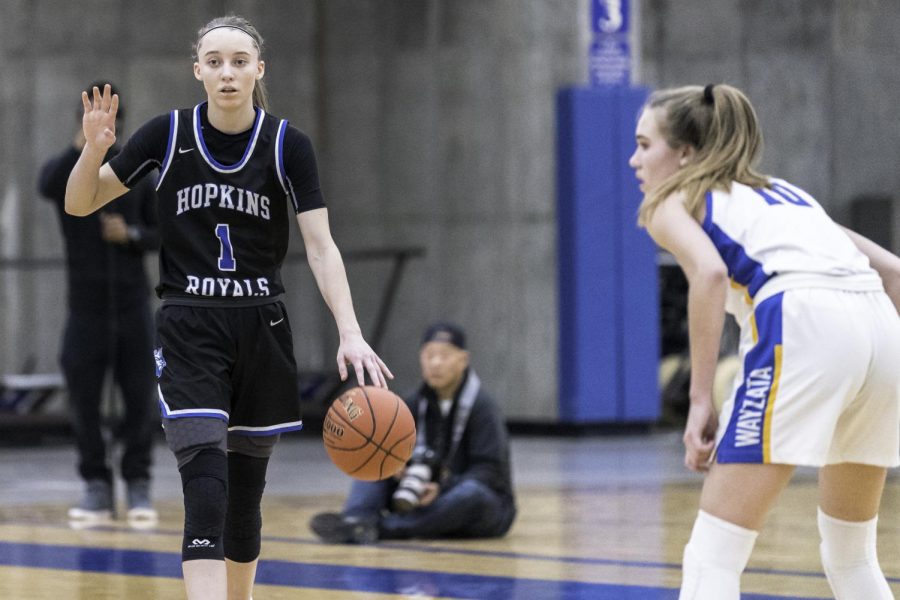Paige Bueckers suffers severe non-contact injury
Dec 14, 2021
On Dec. 5, in the final minutes of the 18-point blowout game against Notre Dame, University of Connecticut women’s basketball star Paige Bueckers fractured her tibial plateau. The non-contact knee injury occurred as the sophomore guard was bringing the ball up the court. Bueckers’s knee suddenly buckled, and she tumbled toward the UConn team’s bench.
Bueckers’s injury comes as extremely disappointing news for the basketball community at large. Within a year of entering the college basketball scene, Bueckers has won nearly every individual award there is to win: the Naismith Women’s College Player of the Year, Best Female College Athlete ESPY Award, and the John R. Wooden Award. Her fancy dribble drives and clutch three-pointers have also helped women’s college basketball attract greater viewership.
“It is heartbreaking to see such a great player like Paige go down,” Morgan Miller, varsity girls basketball coach, said. “The quality of women’s college basketball has risen to unprecedented heights: Paige is the epitome of this growth. She has a dynamic off-the-dribble offense with a clean catch-and-shoot jumper; I truly hope she returns to the court after a well-rested recovery.”
Lamenting the unfortunate injury of the prodigious basketball star, many have questioned UConn’s Hall of Fame head coach Geno Auriemma’s decision not to rest his star guard late in a blow-out game. As coach Auriemma noted, however, Bueckers always wishes to be on the court, and these non-contact injuries can happen at any point in the game.
“The underlying cause of Bueckers’s injury is, in fact, the American sports culture that encourages specialization in one sport, not the fact that she stayed in the court until the very end,” Mr. Miller added. “The repeated use of a specific set of muscles from a very young age allows for such injuries.”
From Bueckers’s injury, the most important takeaway is the importance of staying in shape. More specifically, this means getting enough sleep, not skipping lunch, and stretching before exercise. Playing rough, demanding sports like basketball accompanies the risk of enduring freak injuries, yet taking precautions minimizes its likelihood.







